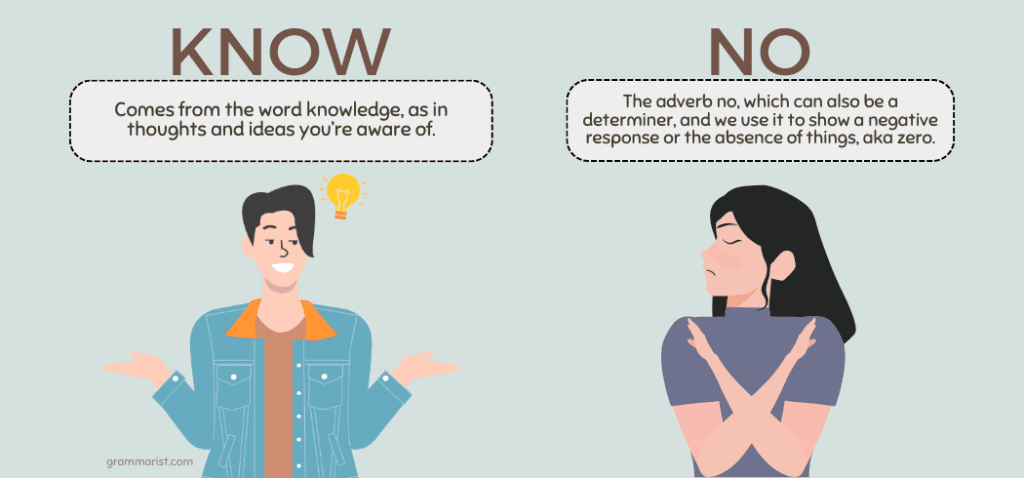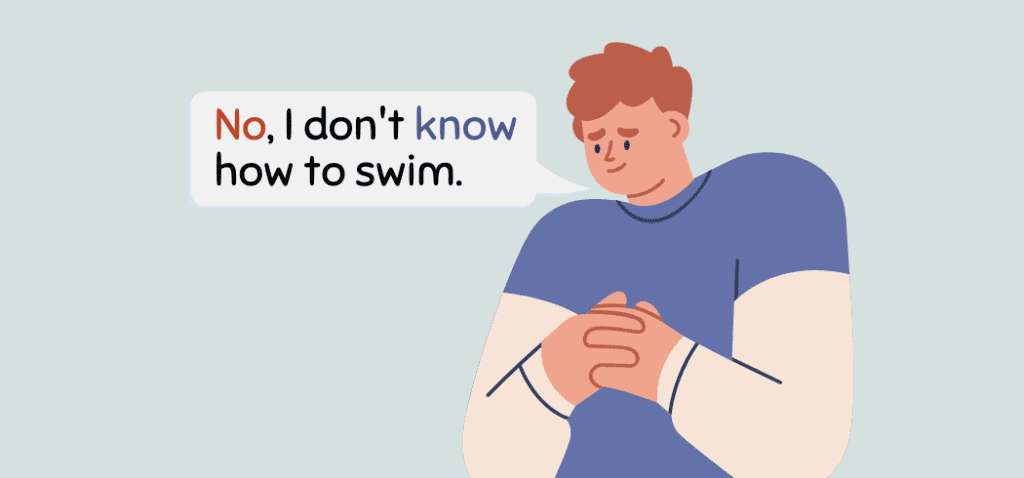Is it no one or know one? Believe it or not, these two terms get mixed up more often than you’d imagine, even with skilled writers. That’s why I’m going to go over ways to remember the difference between them, so you never have to worry about mixing them up.
Difference Between Know and No

There’s a massive difference. The verb know comes from the word knowledge, as in thoughts and ideas you’re aware of. You know how to do something or know you should avoid certain things.
Then we look at the adverb no, which can also be a determiner, and we use it to show a negative response or the absence of things, aka zero. There is no chocolate sauce on that ice cream or saying no when you don’t like something. It’s the opposite of yes.
How Do You Spell No
If you’re talking about the negative statement no, as in the opposing word to yes, then the correct spelling is simply n-o. But if you want to spell the word for being aware of something or having knowledge, the proper spelling is k-n-o-w.
When to Use No and Know

It’s essential to understand when to use “no” and “know” in a sentence to avoid major confusion because they’re not interchangeable. If you’re saying something negative, you should use “no.” Like, “No, I don’t want to go to the movies tonight.”
But if you’re talking about being aware of certain things, you should use “know.” You could say something like, “I know how to swim.” Or “I don’t know what time it is.”
Is It Know One or No One?
Listen, some people might say otherwise, but it’s always “no one,” I promise. This is a pronoun we use in the English language that refers to nobody or not anyone. Here, I’ll show you another example: “No one is allowed to leave the building until the fire drill is over.”
An easy way to remember is to turn the word no into not and add a noun, like person. “Not one person is allowed to leave the building until the fire drill is over.”
Is It No Matter or Know Matter?
It’s “no matter” if you’re trying to say it doesn’t matter. It’s a phrase we use to show that something isn’t essential or very significant. Like, “No matter what happens, I’ll always love you.”
Examples of Know in a Sentence
- I don’t need a recipe; I know how to cook lasagna.
- Do you know where the nearest gas station is? I’m almost empty.
- Don’t ask him; he doesn’t know anything about writing Fantasy Romance.
- My sister is amazing and knows how to speak five languages fluently.
The young are lucky, and it is hard to avoid the suspicion that they know so. (The Financial Times)
Examples of No in a Sentence
- No, we can’t come to your party tonight because we can’t get a sitter for the kids.
- I told the kids no more cake, but they snuck it when I wasn’t looking.
- There are no more cookies left in the jar, and now I’m sad.
- We need to call a tow truck because I have no clue how to fix a flat tire.
Female deputies in Iran are suing a conservative male colleague after he declared in a video that parliament was no place for “donkeys and women.” (The Guardian)
No One Knows
I hope my quick guide helped clear up any confusion. Remember to use “no” when you mean something negative and “know” when talking about awareness or knowledge. Now you know the difference, so there’s no excuse for getting it wrong!
